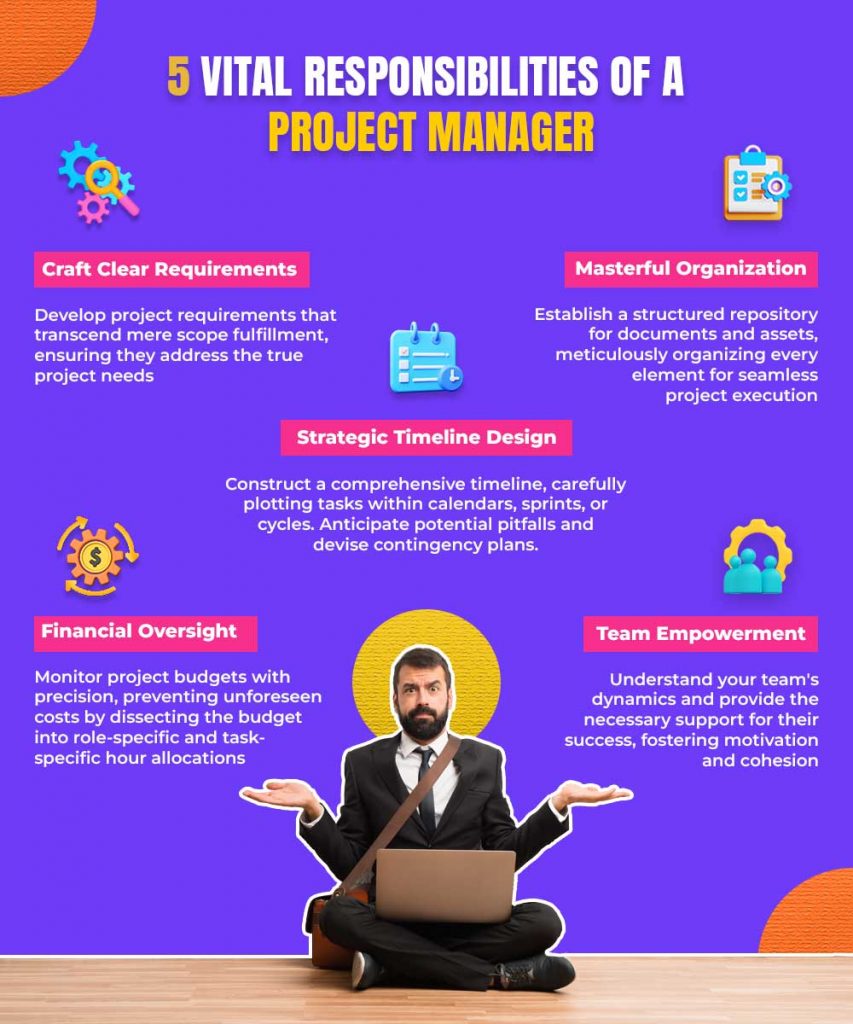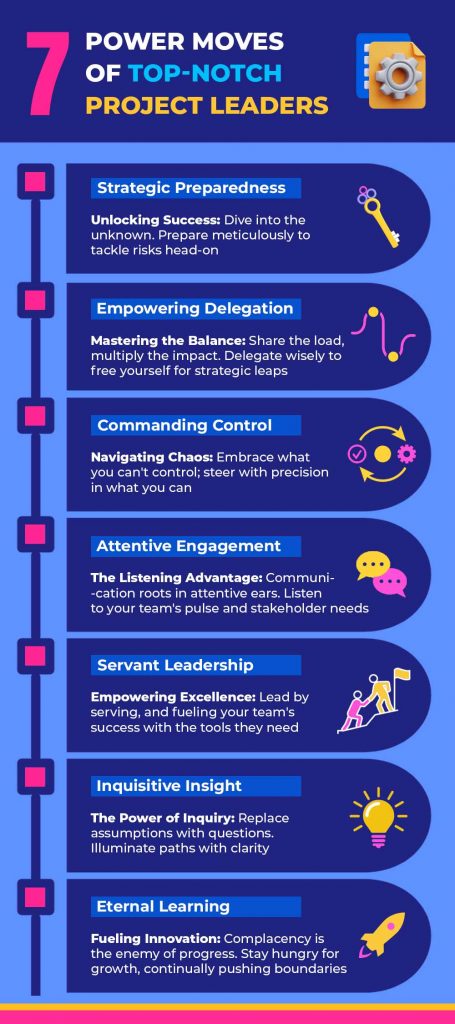How to Become a Successful Product Manager
Becoming a successful product manager is a rewarding journey that requires a unique blend of skills, experiences, and a dedication to continuous learning. Product Managers play a crucial role in driving the success of a product from conception to launch and beyond.


If you’re passionate about creating innovative products that meet customer needs and lead cross-functional teams to success, then product management might be the perfect career path for you. In this detailed guide, we’ll explore the essential steps to becoming a standout product manager.
1. Build a Strong Foundation:
Self-awareness is the starting point for any aspiring product manager. Take the time to identify your strengths and weaknesses. Are you a natural leader with excellent communication skills? Do you excel at problem-solving or organization? Understanding your strengths will guide you in fortifying weaker areas. A solid foundation in project management fundamentals is essential. Consider enrolling in project management courses or pursuing certifications such as PMP (Project Management Professional) or CAPM (Certified Associate in Project Management). These certifications provide a deep understanding of project lifecycles, methodologies like Agile or Waterfall, and best practices.
2. Gain Practical Experience:
Practical experience is invaluable for aspiring product managers. Start at the ground level by seeking entry-level roles such as project coordinator or assistant project manager. These positions offer hands-on experience with project execution, team dynamics, and stakeholder management. Don’t shy away from seeking diverse project involvement. Volunteering for projects outside your usual domain broadens your perspective and equips you to tackle diverse challenges.
3. Hone Your Skillset:
Effective communication is a cornerstone of product management. Product managers must be adept at both written and verbal communication to convey their vision to technical and non-technical audiences. Practice clear and concise communication to keep stakeholders informed and teams aligned. Becoming a problem-solving ninja is essential in the fast-paced world of product management. Develop a structured approach to problem-solving, including identifying root causes, brainstorming solutions, and evaluating risks before implementation. Negotiation and conflict resolution skills are also crucial. Projects often encounter obstacles and disagreements. Sharpen your negotiation skills to navigate challenges and keep projects on track. Additionally, mastering time management is vital. Utilize project management tools, prioritize tasks effectively, and manage your own time efficiently.
4. Cultivate Essential Traits:
Leadership is at the heart of successful product management. Great product managers inspire and motivate their teams to achieve excellence. Foster a collaborative environment where team members feel empowered to contribute their best work. Adaptability and resilience are also key traits. Projects rarely go as planned, so develop the ability to adapt to change and bounce back from setbacks. Become a stakeholder whisperer by mastering stakeholder relationship management. Project success often hinges on managing stakeholder expectations and keeping everyone informed and engaged.
5. Never Stop Learning:
The product management landscape is dynamic and ever-evolving. Stay ahead of trends by actively seeking new knowledge, attending industry conferences, and networking with other product managers. Embrace continuous improvement by reflecting on past projects, identifying areas for growth, and actively seeking opportunities to learn and grow as a product manager.


Challenges Faced in Becoming a Product Manager in the IT Field
1. Navigating the Technological Landscape:
One of the significant challenges aspiring product managers face in the IT field is navigating the ever-evolving technological landscape. The rapid pace of technological advancements requires product managers to stay updated with the latest tools, platforms, and trends. Understanding emerging technologies such as artificial intelligence, cloud computing, blockchain, and Internet of Things (IoT) is crucial for making informed product decisions. Moreover, in IT product management, there’s a constant need to balance innovation with practicality. Product managers must assess which technologies are worth investing in for long-term success while ensuring they align with the organization’s goals and customer needs.
Dealing with this challenge involves a commitment to continuous learning and adaptation. Product managers should actively seek out opportunities to deepen their technical knowledge through courses, workshops, and industry conferences.
Building a network of tech experts and staying connected with industry thought leaders can provide valuable insights into emerging technologies. Additionally, collaborating closely with the development team and understanding their capabilities and constraints is essential. By fostering a culture of innovation and collaboration, product managers can navigate the technological landscape effectively and drive product success in the IT sector.
For any
2. Balancing Stakeholder Expectations:
In the IT industry, product managers often face the challenge of balancing diverse stakeholder expectations. From executives and investors to customers and development teams, each stakeholder group may have different priorities and requirements. Managing these expectations while keeping the product vision intact requires strong communication and negotiation skills. Product managers must effectively communicate the rationale behind product decisions, manage feedback from various stakeholders, and ensure alignment with the overall business strategy.
Also Read: Unleashing the Power of Data Insights & Analytics for Business Success
Addressing this challenge involves creating a transparent and collaborative environment where all stakeholders feel heard and valued. Regular communication through status updates, roadmap presentations, and feedback sessions helps keep everyone on the same page. Product managers should also proactively seek input from stakeholders early in the product development process to avoid misunderstandings later on. Additionally, developing a deep understanding of customer needs and market trends allows product managers to make data-driven decisions that resonate with stakeholders across the board.
3. Agile Implementation and Iteration:
The IT industry often operates on agile methodologies, which emphasize rapid iteration and responsiveness to change. While agility fosters innovation and adaptability, it can also present challenges for product managers. Balancing the need for speed with maintaining product quality and stability requires careful planning and execution. Product managers must work closely with development teams to prioritize features, plan sprints, and adapt to evolving requirements throughout the development cycle.
Dealing with this challenge involves embracing the principles of agile product management. Product managers should break down larger initiatives into smaller, manageable tasks known as user stories. These user stories are then prioritized based on customer value and feasibility. Regular sprint planning meetings and retrospectives allow teams to course-correct and improve continuously. Additionally, product managers should foster a culture of experimentation and learn from failures. By encouraging the team to test new ideas, gather feedback, and iterate quickly, product managers can ensure that their products stay competitive and meet evolving customer needs in the fast-paced IT landscape.
Conclusion:
Becoming an exceptional product manager takes dedication, continuous learning, and a passion for creating impactful products. By following these steps and honing your skills in analytical thinking, communication, leadership, and user-centricity, you’ll be well on your way to leading projects to success. Remember, the journey to becoming a standout product manager is ongoing. Embrace the challenges, stay curious, and never stop striving for excellence.






